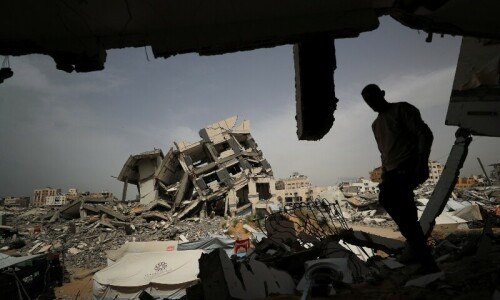THIS is with reference to the editorial “Hasina’s fall” (Aug 6) which reflected on the latest turn in violent protests that had gripped Bangladesh since June. It all started in Dhaka before quickly spreading to other cities, including Chattogram, Comilla, Rajshahi and Sylhet. As the editorial pointed out, the way the whole thing unfolded has a lesson for countries in the region.
In Bangladesh, the first mass-scale agitation by students opposing the quota system took place in 2018. The governm- ent, led by Sheikh Hasina, succumbed to the pressure and announced the abolition of the quota, but later overturned its own decision under pressure from the other side.
However, the matter was subsequently taken to the country’s supreme court, which reinstated the quota system in its totality on June 5 this year. The verdict triggered widespread anger among the students who felt the system had decided to continue undermining merit-based recruitment.
Within days, hundreds of thousands of students were participating in growing demonstrations, blocking major roads and intersections, as well as disrupting daily life nationwide. The government’s response was harsh, leaving hundreds of protesters dead. The unrest prompted the supreme court to expedite the hearing of appeal originally scheduled for August, and, on July 21, it reduced the quota from 30 per cent to 5pc. However, sensing a victory, the protesters rejected the verdict, demanding complete abolishment of the quota system. In the face of the ensuing stalemate, and, indeed, the worsening situation on the streets, the army took over control, and the prime minister had to take shelter in neighbouring India.
The lesson for the higher judiciary in Bangladesh is that it is not merely a tool in the hands of those in power, but has a greater responsibility to serve the public good. When the public is determined to achieve genuine objectives, even the courts must yield ground.
As things stand now, the political parties in Bangladesh, one hopes, would have learned the obvious lesson that the very people who bring them to power have the capacity to remove them. Not only this, the energy and determination of the people can overpower even the most powerful of governments, leading to the administration stepping down in total disgrace.
Unfortunately, what the government as well as the judiciary did not realise in Bangladesh while the protesters were out in the streets, the army did under the command of General Wakeruz Zaman (who can be seen in the accompanying image). Undoubtedly, as the editorial rightly pointed out, there are lessons to be learnt by countries in South Asia.
Qamar Bashir
Islamabad
Published in Dawn, August 8th, 2024












































